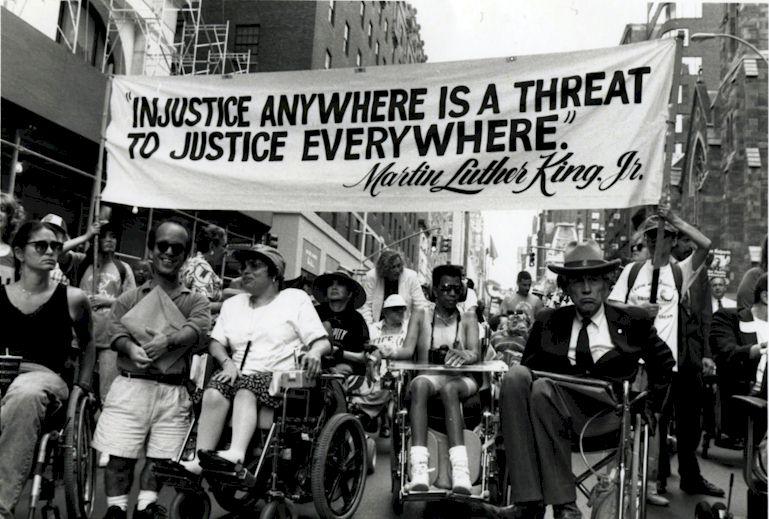
As Canadians, we pride ourselves on things like free healthcare and government sponsored maternity leave. In respect to these policies, we arguably have developed a superiority complex over our neighbors to the south. However, there is one area where the United States has Canada beat, and that is in legislation regarding people with disabilities. In 1990, the United States created the Americans with Disabilities Act, which prohibits discrimination of individuals living with mental and physical disability in respect to employment, access to government services, communications, transportation, and public accommodations.
This is certainly not the first article examining why Canada does not have federal legislation protecting Canadians with disabilities. In fact, in my quest to research this phenomenon, the oldest article I found was published in 1998. Seriously! Why doesn’t Canada have a disabilities act?
Many past politicians have included proposals for a federal disabilities act within their platforms but none have come to fruition. The current government has also promised to enact national accessibility legislation and has earmarked $2 million towards the initiative in their 2016 budget, but the bill has yet to come.
Why does Canada need a disabilities act? As Andre Picard of the Globe and Mail states, there are four reasons. National legislation protecting Canadians with disabilities would:
-
“provide a clear and comprehensive national mandate for the elimination of discrimination against individuals with disabilities.”
-
“provide clear, strong, consistent, enforceable standards addressing discrimination against individuals with disabilities.”
-
“ensure that the federal government plays a central role in enforcing these standards.”
-
“regulate commerce in order to address the major areas of discrimination faced day-to-day by people with disabilities.”
Research by the Canadian Disability Policy Alliance (CDPA) helps to shed light on some of Canada’s shortcomings around creating and legislating protection for persons with disabilities. The CDPA publication, A Canadians with Disabilities Act? compares the laws regarding disability in the US, UK, and Australia with Canadian law and shows that Canada is not up to par with other countries when it comes to legislation that protects persons with disabilities. According to the Toronto Star, legislation is in the works, slated for review in Spring 2018 – but if Canada doesn’t create something soon, it will certainly fall behind.
Let’s take a look at the current provincial legislation available for persons with disabilities. To date, only Ontario, Manitoba and Nova Scotia have instituted their own disability legislation. The Accessibility for Ontarians with Disabilities Act, for example, was passed in 2005. By 2025, the bill promises to have improved accessibility for Ontarians with physical and mental disabilities in all public establishments.
BC, on the other hand, has an initiative called Accessibility 2024 which has the goal of making BC more accessible by 2024. However, this is an initiative and not a bill. BC does have an Employment and Assistance for Persons with Disabilities Act, but the Act only provides protection against discrimination within the employment sector, and not in other areas people with disabilities may experience discrimination, such as access to public services, transportation, communications and public accommodations.
Although provincial legislation regarding accessibility is a step in the right direction, a federal act and national legislation would ensure equal access to employment, public services, and establishments for persons with disabilities; rights for all Canadians, no matter what province or territory you live or work in.
If we want to maintain our status as a progressive nation, we need to enact legislation that helps people with disabilities. In order to ensure that all Canadians are afforded the same rights under the law, we need a disabilities act.
Want to make a difference? Write a letter to your MP about proposing a federal disabilities act or share this article with others to get the word out.
Beyond the Blog
-
Connect with the Centre for Students with Disabilities.
-
Read more about creating new federal accessibility legislation
















